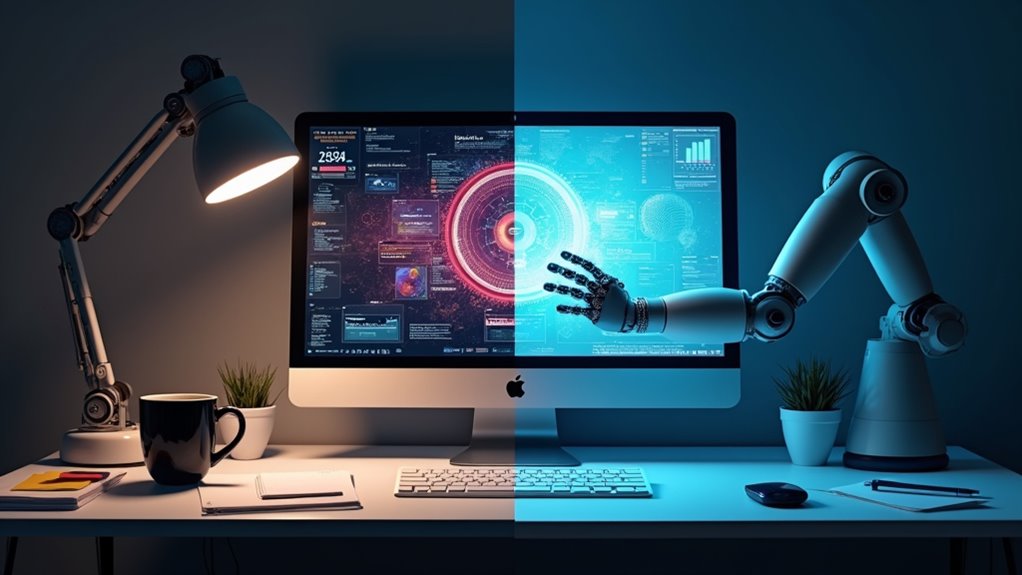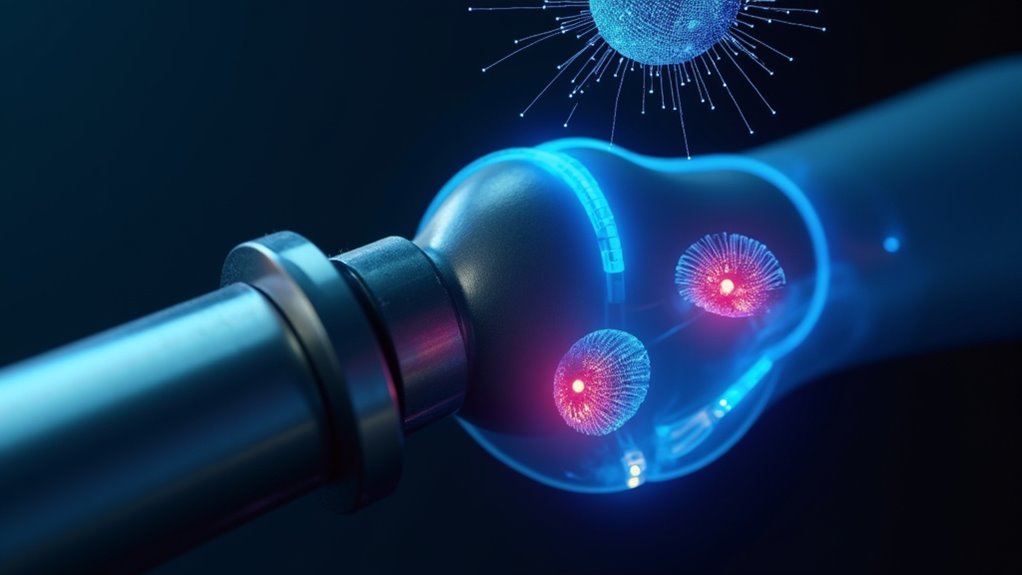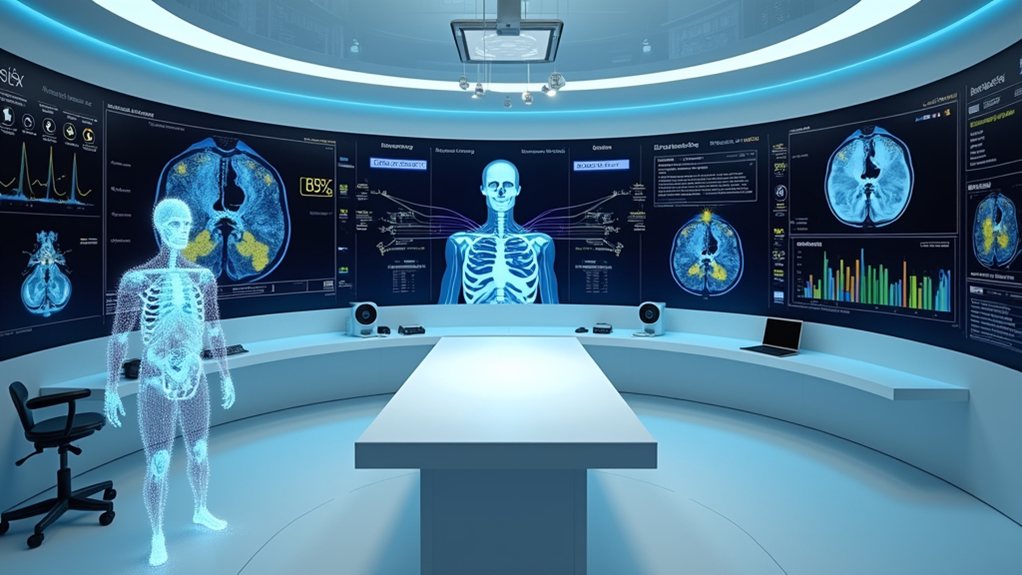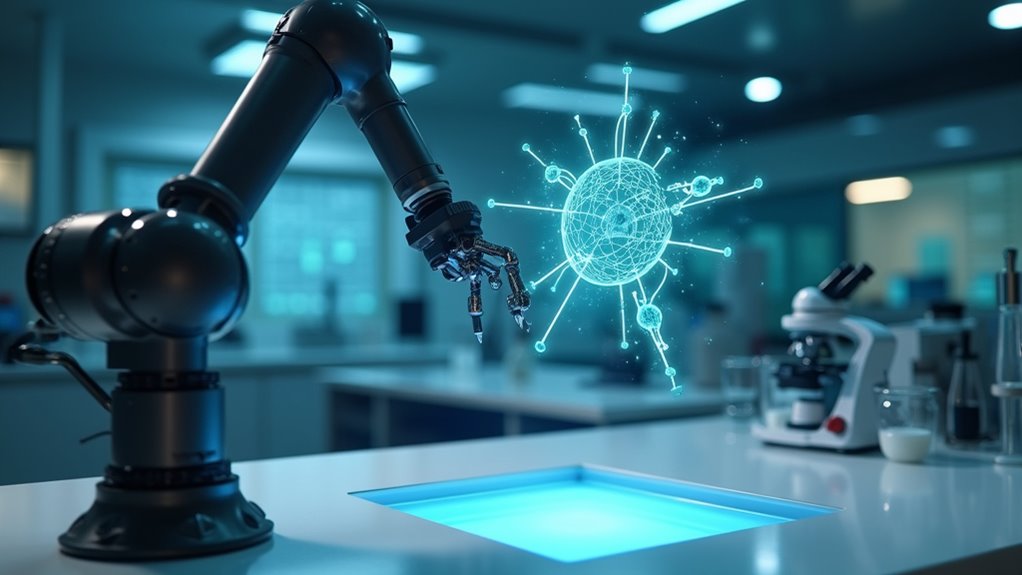Google’s AMIE AI outshines doctors at medical imaging by analyzing visual data alongside patient history—something humans can’t do simultaneously. Built on Gemini 2.0 Flash, this digital doc produces more accurate differential diagnoses and spots subtle patterns that physicians might miss. In a double-blind study, it even scored higher for empathy than human doctors (awkward, much?). The AI maintains perfect context throughout consultations, never needing coffee breaks. The healthcare revolution is just getting warmed up.
While doctors across America are still struggling to decipher their patients’ mysterious rashes from blurry smartphone photos, Google has quietly released AMIE—an AI system that might just put those squinting dermatologists out of business. Built on Google’s Gemini 2.0 Flash model, this AI diagnostic wizard isn’t just another Silicon Valley toy—it’s consistently outperforming human physicians in head-to-head tests.
The secret to AMIE’s success lies in its multimodal capabilities. Unlike your family doctor who might glance at your phone screen for three seconds before mumbling “probably eczema,” AMIE meticulously analyzes both visual data and patient history simultaneously. It’s like having a doctor with perfect memory and eagle eyes who never gets distracted by thoughts of lunch. AMIE’s development includes the use of SCIN dataset of dermatology images for grounding its multimodal scenarios.
Research shows AMIE produces more accurate and complete differential diagnoses than primary care physicians. Even specialists have rated its image interpretation and clinical reasoning higher than their human counterparts. The system can spot subtle visual patterns in everything from skin conditions to lab reports that might slip past even experienced clinicians. The technology enhances medical imaging analysis by improving both speed and precision compared to traditional methods. The AI system was rigorously evaluated through a randomized, double-blind crossover study comparing it with board-certified physicians.
Perhaps most surprising is that AMIE apparently has better bedside manner than your average doctor. Patient actors rated the AI higher for empathy and trustworthiness—though to be fair, the AI never keeps them waiting for 45 minutes in a paper gown.
The technology uses “state-aware reasoning” to maintain context throughout a consultation, adapting its approach as new information emerges. It’s fundamentally mimicking the clinical workflow of top doctors, but without the coffee breaks or vacation days.
Validated through 105 simulated consultations, AMIE matched or exceeded physicians across diagnostic accuracy, management planning, and escalation decisions. Even its rate of “hallucinations” (AI-speak for making stuff up) was statistically on par with human doctors’ errors.









